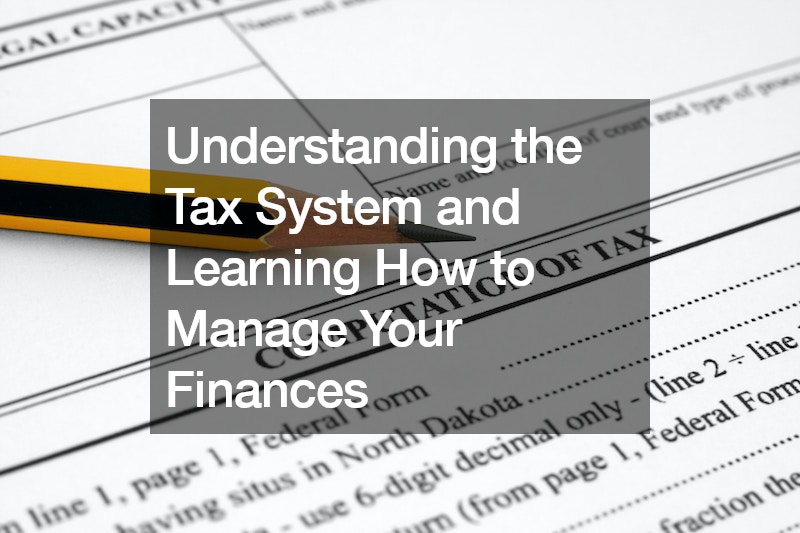Managing personal finances, especially navigating the intricate world of taxes, can be a daunting task. To demystify the complexities, let’s break down the fundamental concepts of the U.S. tax system and explore how individuals can effectively manage their finances.
Video Source
Tax Buckets and Progressive Rates:
Visualizing the U.S. tax system can be compared to filling progressively larger buckets. Each bucket corresponds to a specific tax rate, such as 10%, with an income range. As income grows, individuals move through various brackets, each with its own tax rate. Understanding this structure is crucial for assessing tax obligations accurately.
Adjustable Gross Income (AGI):
Gross income, the total earnings before taxes, is refined into Adjustable Gross Income (AGI). This process involves subtracting certain expenses known as adjustments or above-the-line deductions. For instance, student loan interest payments can be deducted, reducing the AGI.
Exemptions and Deductions:
AGI can be further lowered by exemptions and deductions. Exemptions provide a flat reduction in AGI, while deductions depend on individual expenses. Deductions, such as charitable donations or mortgage interest, can be itemized or claimed as a standard deduction. The choice between the two depends on which option provides a greater reduction.
Taxable Income and Federal Income Tax:
After factoring in exemptions and deductions, taxable income is derived. Placing this figure into the applicable tax brackets reveals the federal income tax owed. The tax system operates progressively, ensuring that those with higher incomes contribute proportionally more.
Tax Credits:
Tax credits directly reduce the actual tax payments. Unlike exemptions and deductions that lower AGI, credits are applied after calculating the tax owed. For example, a $1,000 tax credit can offset a $2,300 tax bill, significantly reducing the financial burden.
State Income Taxes:
While federal taxes are a significant component, individuals may also be subject to state income taxes. Fortunately, these are usually calculated similarly to federal taxes but are often lower.
Managing Your Finances Effectively:
Understanding the tax system is a pivotal aspect of managing personal finances. Here are some tips to navigate the financial landscape effectively:
Utilize Tax Management Apps:
Embrace technology to streamline personal tax management. A personal tax management app can help organize financial information, track expenses, and provide insights into potential deductions. Tools like this empower individuals to take control of their financial data and make informed decisions.
Stay Informed About Tax Changes:
Tax regulations are subject to change, and staying informed about updates is crucial. Regularly check for changes in tax laws, exemptions, and deductions. This knowledge ensures accurate financial planning and compliance with tax obligations.
Seek Professional Advice:
For complex financial situations, seeking advice from tax professionals or financial advisors is advisable. Professionals can provide personalized guidance, ensuring that individuals make informed decisions aligned with their unique circumstances.
Budget Wisely:
Establishing a comprehensive budget is essential for effective financial management. Allocate funds for necessary expenses, savings, and investments. A well-structured budget helps individuals stay on track and achieve their financial goals.
Maximize Retirement Contributions:
Contributing to retirement accounts not only secures financial well-being in the future but also offers potential tax benefits. Explore options like 401(k) or Individual Retirement Accounts (IRA) and take advantage of employer matching contributions.
Invest in Financial Education:
Continual learning is essential for mastering personal finance and tax management. Invest time in expanding financial literacy through books, online courses, or workshops. Understanding financial principles empowers individuals to make informed decisions, optimize tax strategies, and build wealth over time. Additionally, exploring resources provided by government agencies, such as the Internal Revenue Service (IRS), can offer valuable insights into tax regulations and compliance requirements.
Plan for Tax Efficiency:
Strategically planning financial transactions can optimize tax efficiency. For example, timing investment sales to minimize capital gains taxes or maximizing deductions through charitable giving can reduce tax liabilities. Regularly reviewing and adjusting financial strategies in line with tax laws ensures individuals make the most of available opportunities for tax savings.
Maintain Accurate Records:
Maintaining meticulous financial records is crucial for effective tax management. Keep organized records of income, expenses, deductions, and investments throughout the year. Accurate documentation facilitates tax preparation, minimizes errors, and ensures compliance with reporting requirements. Leveraging digital tools or working with financial professionals can streamline record-keeping processes and enhance efficiency.
Regularly Review Financial Goals:
Financial goals evolve over time, necessitating periodic reviews and adjustments. Regularly assess short-term and long-term financial objectives, lifestyle changes, and market conditions. Aligning financial strategies with evolving goals ensures individuals stay on track to achieve financial security and prosperity. Revisit tax planning strategies annually to capitalize on new opportunities and adapt to changing circumstances effectively.
In conclusion, understanding the U.S. tax system is a key component of effective personal financial management. Leveraging technology through personal tax management apps, staying informed about tax changes, seeking professional advice when needed, budgeting wisely, and maximizing retirement contributions are proactive steps toward financial success. Empowering individuals with financial literacy ensures they can navigate the complexities of taxation and make informed decisions for a secure financial future.
.


